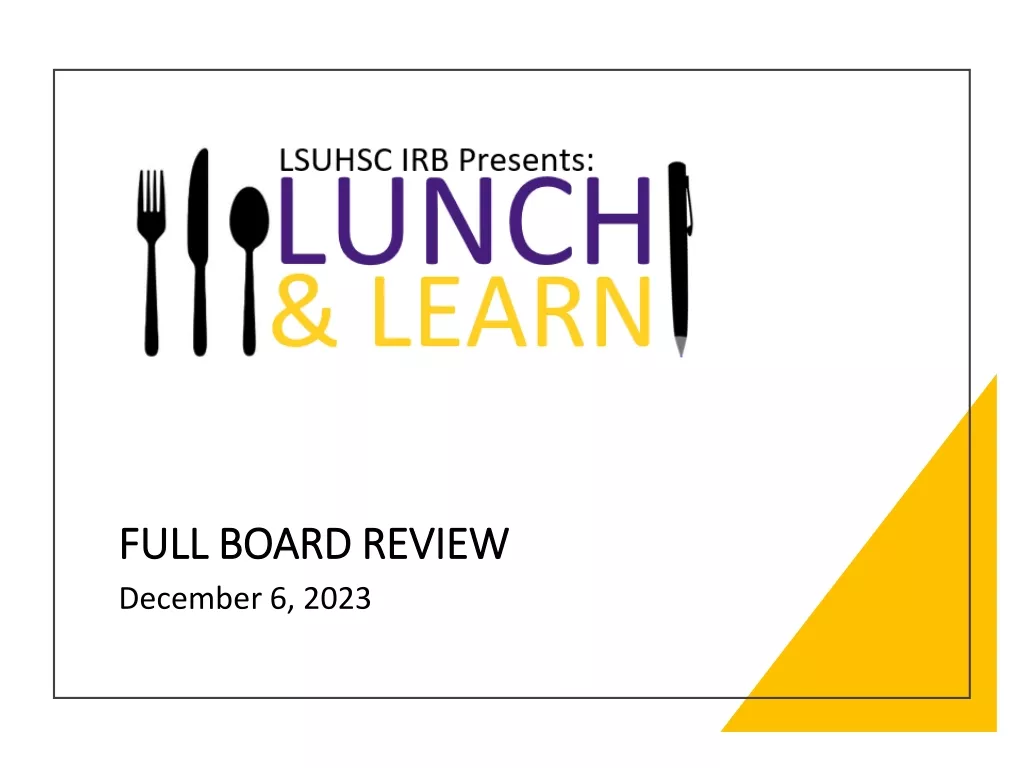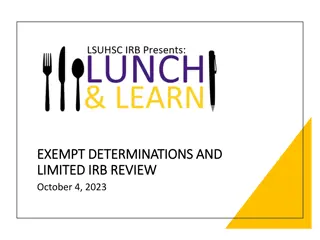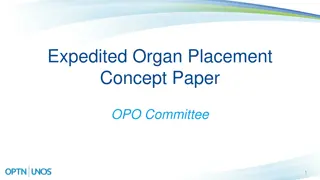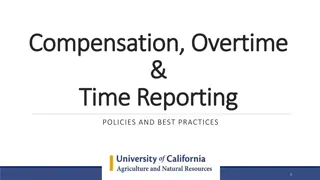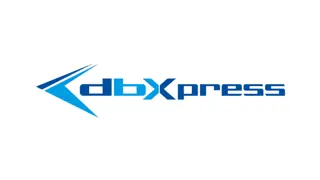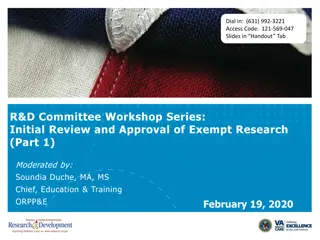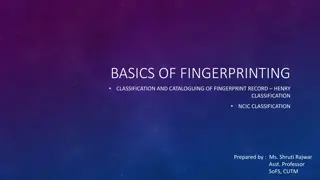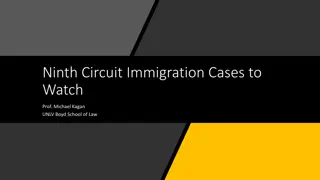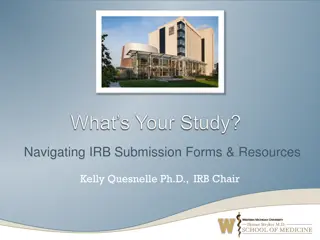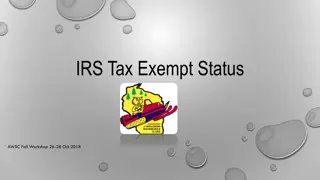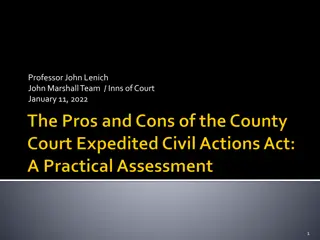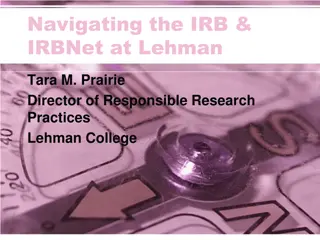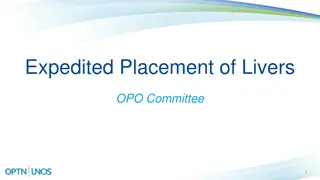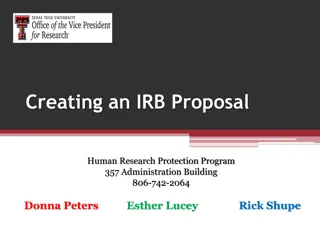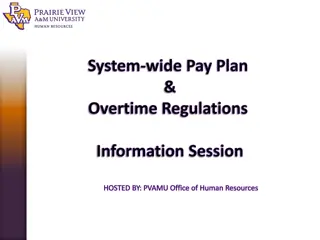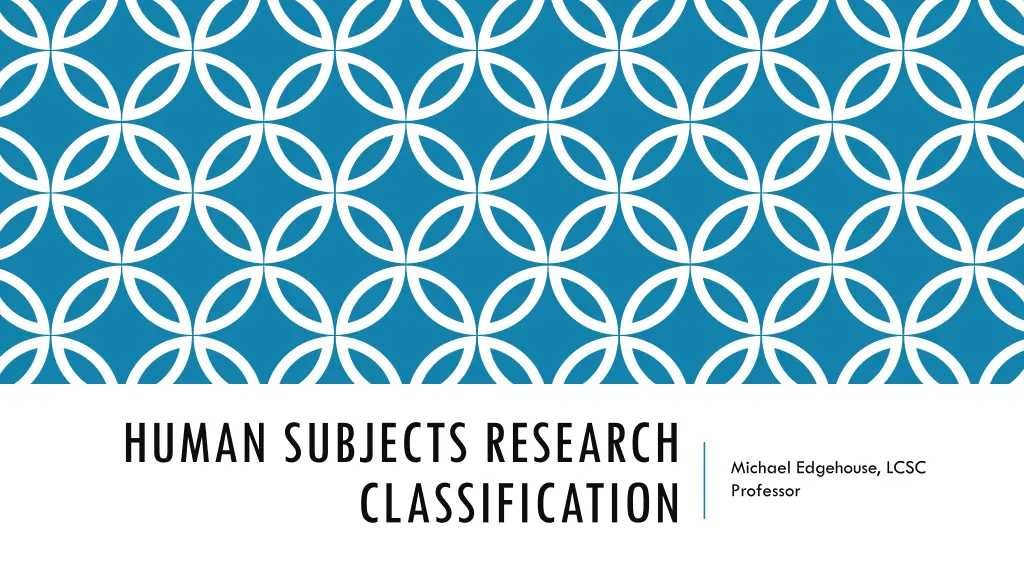
Understanding Human Subjects Research Classification
Explore the classifications of human subjects research including exempt, expedited, and full board review categories. Learn about what is considered exempt, expedited, and which research requires a full board review, based on specific criteria and conditions.
Download Presentation

Please find below an Image/Link to download the presentation.
The content on the website is provided AS IS for your information and personal use only. It may not be sold, licensed, or shared on other websites without obtaining consent from the author. If you encounter any issues during the download, it is possible that the publisher has removed the file from their server.
You are allowed to download the files provided on this website for personal or commercial use, subject to the condition that they are used lawfully. All files are the property of their respective owners.
The content on the website is provided AS IS for your information and personal use only. It may not be sold, licensed, or shared on other websites without obtaining consent from the author.
E N D
Presentation Transcript
HUMAN SUBJECTS RESEARCH CLASSIFICATION Michael Edgehouse, LCSC Professor
WHAT IS CONSIDERED EXEMPT RESEARCH? Exempt research CANNOT include minors, pregnant women, or prisoners. No audio or visual recording of participants No observation of a minor s behavior Categories for Exempt review 1. Education research 2. Surveys (anonymous), educational tests, public observations (not involving children) 3. Studies of public officials 4. Analysis of previously-collected, anonymous data 5. Public benefit or service program 6. Consumer acceptance, taste, and food quality studies 2
WHAT IS CONSIDERED EXPEDITED RESEARCH? Categories for Expedited Review 1. Clinical studies of drugs and medical devices only when certain conditions are met 2. Collection of blood samples by finger stick, heel stick, ear stick, or venipuncture in certain populations and within certain amounts 3. Prospective collection of biological specimens for research purposes by noninvasive means 4. Collection of data through noninvasive procedures (not involving general anesthesia or sedation) routinely employed in clinical practice, excluding procedures involving x-rays or microwaves. 5. Research involving materials (data, documents, records, or specimens) that have been collected, or will be collected solely for non-research purposes 6. Collection of data from voice, video, digital, or image recordings made for research purposes 7. Research on individual or group characteristics or behavior or research employing survey, interview, oral history, focus group, program evaluation, human factors evaluation, or quality assurance methodologies, particularly if the data is not anonymous 3
WHAT RESEARCH REQUIRES A FULL BOARD REVIEW? Categories for Full Board Review 1. Studies involving clinical procedures with drugs, devices, or biologics, or innovative research into new medical or surgery procedures 2. Studies taking place internationally 3. Studies in which disclosed information could require mandatory legal reporting 4. Studies involving deception which raise the risk to participants or others 5. Studies in which risk to participants or others to be greater than minimal risk 6. Studies using vulnerable populations and thus requiring extra protections (e.g., children, prisoners, pregnant women and neonates) 4


